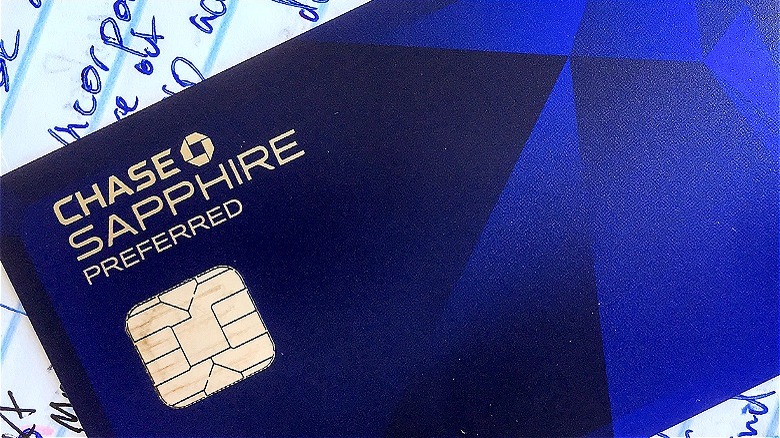What Is Chase's 5/24 Rule?
According to the credit rating agency Experian, the average consumer in the United States has 3.84 total credit card accounts. With that in mind, the concept of opening five new credit cards in a period of two years or less might seem positively bonkers. Yet, to dedicated collectors of airline miles, hotel points, and other travel rewards, opening many new accounts to take advantage of lucrative welcome bonuses — then quickly closing the account to avoid paying another year of the credit card's annual fee — is fairly typical behavior.
This practice, called churning, isn't illegal but it's looked upon unfavorably by card issuers, some more than others. After all, many credit card issuers reward new account holders who meet certain spending requirements with a large bonus, frequently valued at hundreds of dollars. In return, the card issuer expects to have that cardholder as a profitable customer for longer than a few months.
To counteract such activity, Chase rolled out its 5/24 rule in 2015, which limits the number of new credit cards consumers can obtain within a 24-month period and still be approved for a new Chase-backed credit card. Although Chase initially posted to its website a set of rules regarding this 5/24 policy, the language was removed almost as quickly as it appeared. Today, most of the information surrounding Chase's 5/24 rule is shared anecdotally as data points on travel- and awards-related websites, blogs, and message boards.
Check your credit report before applying
When you apply for a new credit card, the issuing bank will run your credit report from one of the three major credit reporting agencies: Equifax, Experian, and TransUnion (though all three contain similar information). Besides simply checking that your credit score is up to snuff, credit card issuers are looking at your ability to repay as evidenced by your payment history, outstanding debt, credit utilization ratio, income, and other factors.
Chase, however, gravitates toward how many credit cards that applicants have been approved for within the past 24 months. If it's more than four, then the application will be automatically declined regardless of credit score or other factors. In other words, five new credit card approvals from any issuer, not just Chase, within a 24-month period will earn you a non-negotiable, automatic denial from Chase. Worse still, evidence indicates that if you were added as an authorized user on another person's account, that'll also count toward your 5/24 status. Likewise, accounts that have already been closed also count, provided they were opened less than 24 months ago.
If your memory proves a little hazy about exactly when you acquired your most recent credit cards, you can always check your credit report free of charge. Frankly, checking your credit score should be done regularly, anyway. If your personal count yields four or fewer new credit card approvals within the past two years, then you've still got space remaining for a new Chase credit card.
Why the Chase 5/24 rule matters
After checking your credit report, if you've come to the realization you've opened too many new credit cards recently not to trigger Chase's 5/24 rule, then there's not much you can do besides wait. Members of the miles and points community have reported getting approved by Chase within days of a fifth credit card aging past two years, but you might want to allow a little additional time just to be safe. Finally, note that other debt, like a mortgage, an auto loan, or student loans, don't count toward the 5/24 rule.
Okay, so why exactly is it important to learn about Chase's 5/24 rule anyway? Because Chase so happens to be a major player in the travel and reward card sector. Its Ultimate Rewards points that are awarded as welcome bonuses and earned from ongoing spending on certain Chase cards like the Sapphire Reserve and Sapphire Preferred are among the most versatile and coveted among credit card reward offers. Chase also partners with several airlines and hotel chains to offer co-branded cards that reward users with miles, as well as points, from the partners' own loyalty programs. There's even a Disney-branded credit card from Chase, as well one for Instacart.
In short, even though Chase's 5/24 rule isn't officially stated anywhere any longer, it's definitely a real thing. If you're just getting started in the world of credit card rewards, it could be a good strategy to apply for a couple of Chase-issued cards early on your journey so you don't get tripped up by the 5/24 rule later.
[Featured image by Ajay Suresh via Wikimedia Commons | Cropped and scaled | CC BY 2.0]


